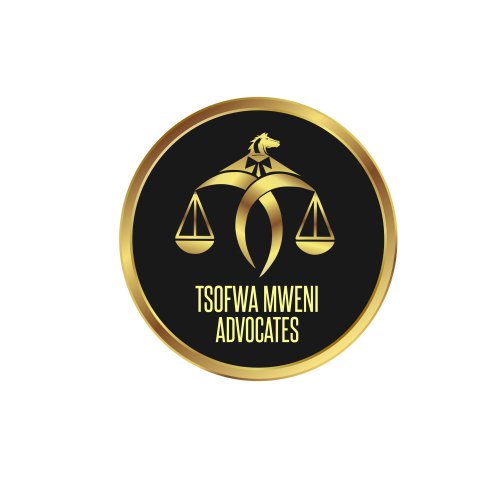About Natural Resources Law in Mombasa, Kenya
Mombasa, a significant port city along the coast of Kenya, boasts a rich variety of natural resources including minerals, fisheries, and marine ecosystems. The region's coastal location makes it pivotal for maritime activities, and its diverse ecosystem supports both local livelihoods and the tourism industry. Natural Resources Law in Mombasa regulates the extraction, utilization, and conservation of these resources to ensure sustainable development. The legal framework is designed to balance economic benefits with the protection of the environment and indigenous communities.
Why You May Need a Lawyer
Individuals and businesses may seek legal advice in the field of natural resources for various reasons:
- Land Ownership and Use Conflicts: Frequently, disputes arise over land rights and access, particularly between locals and commercial interests.
- Environmental Impact Assessments: Legal assistance is needed to navigate the complexities of obtaining and complying with environmental approvals and regulations.
- Resource Extraction Licensing: Obtaining licenses for mining, fishing, or logging requires adherence to specific legal procedures where legal expertise is invaluable.
- Regulation Compliance: Ensuring compliance with local and national laws governing environmental protection and sustainable use of resources necessitates legal guidance.
- Advocacy and Policy Influence: NGOs and community groups might require legal advocacy to influence policies affecting natural resource management.
Local Laws Overview
Mombasa’s natural resources are governed by a combination of national legislation and local by-laws. Key aspects include:
- The Environmental Management and Coordination Act (EMCA): This act provides overarching environmental policy and management frameworks.
- Marine Resources Management: This encompasses laws related to the fishing industry and marine biodiversity preservation.
- Mining Act: Regulates the exploration and extraction of minerals, with stipulations for community rights and environmental safeguards.
- Water Act: Concerns the rights and obligations related to the utilization and management of water resources.
- Land Laws: Address issues relating to land tenure, ownership, and access particularly relevant to forests or arable land tied to natural resources.
Frequently Asked Questions
What are the primary natural resources in Mombasa?
The primary natural resources in Mombasa include minerals, fisheries, marine resources, and valuable biodiversity in its coastal and forest areas.
How can I obtain a resource exploration license?
Resource exploration licenses are governed by national laws, requiring applications through relevant government bodies with a demonstrated compliance to environmental and social standards.
What legal issues are common in the fishing industry?
Common legal issues include licensing, quotas and limits, environmental impact, and navigating disputes over fishing zones or access.
Are there laws protecting marine biodiversity around Mombasa?
Yes, laws exist to protect marine biodiversity, including regulations on fishing, pollution control, and conservation initiatives.
How are land rights conflicts over mineral-rich areas resolved?
Land rights conflicts are addressed through legal frameworks that consider land titles, environmental laws, and community consultations.
What role do environmental impact assessments play?
They are essential in evaluating the effects of projects on the environment before commencement, required by law to secure project approvals.
Can communities influence natural resource laws?
Communities can influence laws through participation in public policy discussions, legal advocacy, and partnerships with NGOs.
What is the legal stance on resource sustainability?
Nairobi's legislation, including local laws, supports sustainable management of resources to ensure long-term economic and environmental balance.
How are mining activities regulated?
Regulations include obtaining licenses, conducting environmental and social impact assessments, and following set safety and sustainability guidelines.
Is legal representation required for resource-related business ventures?
While not mandatory, legal representation is highly advisable to ensure compliance with relevant laws and protection of your business interests.
Additional Resources
Getting comprehensive legal assistance can be supported by reaching out to these resources:
- National Environment Management Authority (NEMA): Provides guidance on environmental regulations and compliance.
- Ministry of Mining: Offers information on mining regulations and licensing procedures.
- Kenya Forestry Research Institute (KEFRI): Engages in research and offers insights into sustainable forestry practices.
- Local NGOs and Community Organizations: Such as the Kenya Natural Resource Alliance, which advocates for sustainable practices.
Next Steps
If you need legal assistance in the field of natural resources, consider the following steps:
- Identify the specific nature of your legal issue or requirement.
- Research and reach out to local lawyers who specialize in natural resources law.
- Prepare all relevant documentation and background information before your consultation.
- Plan to discuss your case in detail to understand your legal options and potential outcomes.
- Consider visiting or contacting governmental bodies for initial advice especially regarding compliance and regulation issues.
Lawzana helps you find the best lawyers and law firms in Mombasa through a curated and pre-screened list of qualified legal professionals. Our platform offers rankings and detailed profiles of attorneys and law firms, allowing you to compare based on practice areas, including Natural Resources, experience, and client feedback.
Each profile includes a description of the firm's areas of practice, client reviews, team members and partners, year of establishment, spoken languages, office locations, contact information, social media presence, and any published articles or resources. Most firms on our platform speak English and are experienced in both local and international legal matters.
Get a quote from top-rated law firms in Mombasa, Kenya — quickly, securely, and without unnecessary hassle.
Disclaimer:
The information provided on this page is for general informational purposes only and does not constitute legal advice. While we strive to ensure the accuracy and relevance of the content, legal information may change over time, and interpretations of the law can vary. You should always consult with a qualified legal professional for advice specific to your situation.
We disclaim all liability for actions taken or not taken based on the content of this page. If you believe any information is incorrect or outdated, please contact us, and we will review and update it where appropriate.

















